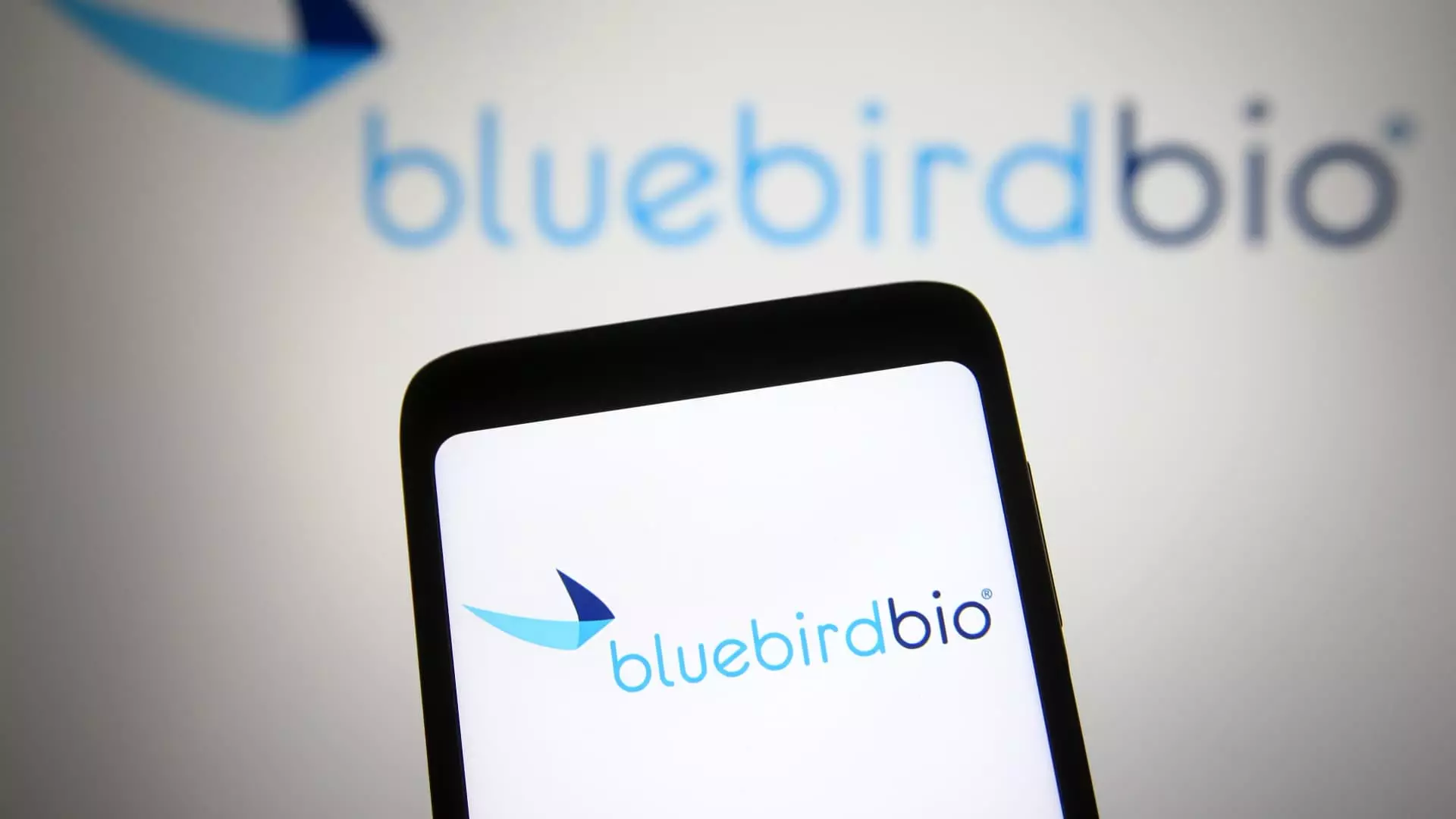Bluebird Bio, once considered a pioneering giant in the biotech industry, has recently announced its sale to private equity firms Carlyle and SK Capital for approximately $30 million. This transaction represents a dramatic decline for a company that not long ago boasted a market cap nearing $9 billion, captivated investors with its groundbreaking gene therapies, and sparked significant excitement in the realm of genetic medicine. The story of Bluebird Bio is not just a financial narrative; it serves as a crucial case study for the biotech landscape, highlighting the harsh realities companies face in the transition from hopeful innovation to sustainable revenue.
Following an announcement that sent stocks plummeting, Bluebird Bio’s shares closed at $7.04 before the news of the sale triggered a staggering 40% decline. The painful reality set in as shareholders will now receive a mere $3 per share upfront—a disheartening figure considering the company’s former glory. If certain sales milestones for its gene therapies are met by 2027, shareholders may receive an additional $6.84 per share. However, the dwindling prospects of Bluebird’s financial health raise serious questions about whether these outcomes will ever materialize.
The company’s trajectory changed significantly after encountering multiple setbacks, beginning with a major turning point in 2018 when a patient treated with its sickle cell therapy developed cancer. Although Bluebird assured stakeholders that their treatment did not induce the cancer, the incident sowed distrust and raised alarm regarding the safety of its groundbreaking but still experimental DNA-altering therapies. Such concerns encapsulate the precarious nature of clinical trials and the risk of unforeseen consequences that can undermine public and investor confidence.
For over three decades, Bluebird Bio led the charge in the development of innovative one-time treatments for genetic diseases. Yet, their visionary aspirations collided with the stark realities of the pharmaceutical industry. The company attempted to stake its claim with the pricing of its gene therapy for beta thalassemia, Zynteglo, at an eye-popping $1.8 million per patient. This exorbitant price tag alienated potential customers and attracted criticism from European health payers, leading the company to withdraw Zynteglo just two years after its European approval.
Despite shifting focus to the U.S. market and rolling out additional therapies like Lyfgenia for sickle cell disease and Skysona for cerebral adrenoleukodystrophy, financial relief proved elusive. The company’s operations were costly, with annual expenditures reaching hundreds of millions. Moreover, the decision to offload its cancer research to the newly formed 2Seventy Bio deprived Bluebird of a crucial revenue stream. With only enough cash to sustain operational activities into early 2023, the urgency for a sale intensified.
Bluebird’s collapse raises profound questions about the viability of one-time genetic therapies as sustainable business models. As the biotech sector grapples with similar challenges, other significant players are also displaying faltering efforts. Vertex’s competing sickle cell therapy, Casgevy, is struggling with disappointing uptake, while Pfizer has abandoned its newly approved gene therapy for hemophilia due to inadequate demand. These developments underscore systemic issues within the industry, revealing that while the potential for transformative treatments exists, the pathway to commercialization remains fraught with obstacles.
Despite the financial turmoil, the impact of Bluebird’s therapies on individual patients cannot be overstated. The hope and health they offered to patients dealing with debilitating genetic disorders highlight the potential for one-time treatments to become truly transformative. However, the equally harrowing reality is that such hope does not always translate into corporate success.
As Bluebird Bio closes this chapter, industry insiders and stakeholders must reflect on the lessons gleaned from its evolution. The biotech community must reassess strategies to ensure that innovative treatments not only meet scientific rigor but also align with business sustainability. The road ahead remains uncertain, but Bluebird Bio’s experience serves as both a cautionary tale and a source of inspiration. As the industry seeks to balance hope with practical viability, it becomes imperative to learn from the past to pave the way for future innovations that can genuinely change lives while establishing a robust business foundation.


Leave a Reply